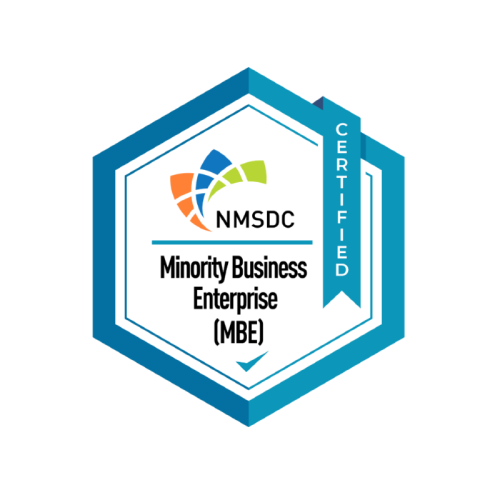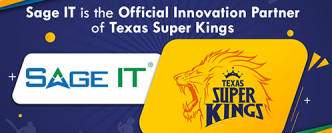In today’s competitive job market, organizations are constantly seeking the most efficient and effective methods to attract, hire, and retain top talent. The decision to utilize Recruitment Process Outsourcing (RPO) or traditional hiring methods is an important consideration for companies aiming to optimize their recruitment process.
RPO and traditional hiring both involve finding well-suited candidates for specific roles. The distinction lies in the overall approach and focus on recruitment. RPO delivers a more strategic and holistic approach to an organization’s recruiting process, working beyond merely filling open positions.
This method delves into aspects such as turnover rates, technology, and scalability to create a comprehensive recruitment strategy.
On the other hand, traditional hiring focuses on individual roles with an emphasis on crafting job descriptions, posting them online, and selecting suitable candidates. While this approach may produce successful hires, it often lacks the strategic framework and broader insights offered by RPO services.
Understanding RPO and Traditional Hiring
Recruitment Process Outsourcing (RPO) and Traditional Recruitment are two distinct methods used by companies to find and hire talent. Each approach has its advantages, but their core methodologies vary. In this section, we will explore the differences between RPO and Traditional Hiring and the unique attributes of each.
RPO (Recruitment Process Outsourcing) is a strategic approach to hiring that involves outsourcing key recruitment processes to a third-party partner. An RPO partner typically takes on multiple aspects of the hiring process, which may include sourcing candidates, managing the recruitment pipeline, and designing the overall talent acquisition strategy for a company. Their goal is to ensure a more efficient and effective hiring process that aligns with the company’s objectives and values.
On the other hand, Traditional Recruitment mainly involves working with a recruitment agency or hiring internally through the company’s HR team. Recruitment agencies focus on matching candidates with job opportunities, primarily based on qualifications and experience. The hiring process is generally more transactional, with fees often contingent on successful placement of a candidate.
Here is a summary of the key differences between RPO and Traditional Recruitment:
| Feature | RPO | Traditional Recruitment |
|---|---|---|
| Scope | Comprehensive and strategic | More transactional |
| Responsibility | Third-party RPO provider | Recruitment agency or internal HR team |
| Cost Structure | Fee based on a variety of factors | Contingent on successful candidate placement |
| Recruiting Mindset | Long-term, results-oriented approach | Short-term, opportunistic approach |
| Talent Attraction | Proactive, employer branding,diverse candidate pool | Reactive, limited to available candidates in agency’s network |
The choice between RPO and Traditional Recruitment ultimately depends on a company’s specific needs and goals. For instance, businesses looking for a more strategic and long-term approach to talent acquisition may find RPO more beneficial. Conversely, companies with short-term or immediate hiring needs may lean toward traditional recruitment methods.
It is essential to weigh the advantages and disadvantages of each approach to determine the most suitable recruitment strategy for your organization.
Pros and Cons of RPO
Cost Considerations and Scalability
Recruitment Process Outsourcing (RPO) offers a cost-effective solution for businesses looking to scale their hiring efforts. RPO providers specialize in sourcing and placing candidates, allowing them to streamline processes and reduce costs. Some benefits of RPO include:
- Reduced cost per hire: RPO providers often have established recruitment channels and processes that result in lower costs compared to traditional hiring methods.
- Scalability: RPO services can be customized to suit the specific needs of a company, whether it needs to hire a single employee or hundreds. This adaptability allows for easier scaling of recruiting processes as a business grows.
- Efficiency: By outsourcing recruitment, companies can free up internal resources and focus on their core business functions.
Quality of Talent Acquisition
One of the primary advantages of using RPO is the ability to access quality candidates and expert recruitment services. RPO providers have:
- Expertise in talent acquisition: RPO firms have specialized knowledge and experience in sourcing top talent, often leading to better-fit candidates for positions.
- Industry-specific insight: Many RPO providers specialize in certain industries, giving them greater familiarity with the unique requirements and desired skill sets for each position.
- Wide talent pool: With access to extensive databases and networks, RPO providers can help businesses find candidates that may be difficult to locate through traditional search methods.
Technological Utilization
RPO providers often leverage advanced technology and social media to source and attract quality candidates. By utilizing RPO services, companies can benefit from:
- Advanced recruitment tools: RPO providers commonly use sophisticated software that streamlines the recruitment process, such as applicant tracking systems (ATS) and candidate relationship management (CRM) tools.
- Social media recruiting: Many RPO firms use social media platforms to find and engage with potential candidates, expanding their reach beyond traditional recruitment channels.
- Data-driven processes: RPO providers rely on data analysis to evaluate job markets, create candidate profiles, and optimize recruitment strategies, resulting in a more targeted and efficient approach.
Control and Flexibility
Although outsourcing recruitment may seem like relinquishing control, companies can still maintain a level of flexibility and control over their hiring processes through RPO. Key aspects include:
- Customization of services: RPO providers offer tailored solutions that can be adapted to a company’s specific requirements, giving businesses the flexibility to choose which aspects to outsource.
- Collaboration: RPO firms often work closely with businesses, ensuring that they maintain a clear understanding of the company culture and the type of candidates needed.
- Transparency: RPO providers typically offer performance metrics and regular updates on the recruitment process, allowing businesses to maintain oversight and control over their talent acquisition efforts
Pros and Cons of Traditional Hiring
Reliability of In-House Teams
Traditional hiring often relies on in-house teams, such as HR departments, to source and evaluate potential candidates. Benefits of in-house teams include a deep understanding of the company’s culture, values, and needs, which can help them identify the best fit for a position. However, challenges may arise when relying solely on an in-house team who may lack the resources or expertise to find hard-to-reach candidates, especially for specialized roles.
Candidate Identification and Acquisition
Traditional recruitment practices usually involve writing job descriptions and posting them on various platforms, such as job boards, company websites, and utilizing employee referral programs. This approach might be successful in sourcing a reasonable pool of candidates; however, it may not capitalize on the full potential of the talent market, especially with rapidly-changing business and technology landscapes.
| Advantages | Challenges |
| Familiarity with the company culture | Limited reach in sourcing candidates |
| Quicker feedback process | Possible lack of resources or expertise in specialized roles |
Scope for Personalized Hiring
Traditional recruitment allows HR teams to personalize the hiring process according to their company’s specific needs, which can lead to better candidate experience and alignment with company values. This approach enables employers to make data-driven decisions, tailored to their unique criteria, leading to higher chances of successful hires. However, traditional hiring may be restricted by limited resources, time, and budget, leading to incomplete or less efficient recruiting processes.
Decision Making Process
In traditional hiring, the decision-making process is often kept in-house, enabling employers to have direct control over every aspect of the recruitment process. This allows for immediate feedback and adjustments, promoting efficiency and agility. However, this approach can be transactional, lacking the strategic perspective that recruitment process outsourcing (RPO) can provide to businesses wanting to optimize their hiring for long-term success.
Employer Branding
Employer branding plays a crucial role in attracting qualified candidates. Traditional hiring practices enable businesses to develop and maintain their unique employer brand throughout the recruitment process. A strong employer brand fosters trust, loyalty, and can set a company apart from its competitors. However, the effectiveness of an employer’s brand may be limited by the in-house team’s ability to reach and engage with top talent, especially when competing with staffing agencies and recruiters who have established connections in the market.
RPO Vs Traditional Hiring: A Comparative Analysis
Effectiveness
RPO (Recruitment Process Outsourcing) is known for its effectiveness in providing high-quality talent and shortening time-to-hire. RPO providers leverage specialized expertise and market knowledge to target specific roles, resulting in more precise matches. Moreover, outsourcing recruitment processes helps to reduce the workload of in-house HR teams, increasing overall efficiency.
On the other hand, Traditional Hiring methods may not consistently yield top-quality candidates, as in-house HR teams often face time and resource constraints. Additionally, traditional recruitment strategies may be less specialized, leading to less accurate role matching.
Methodologies
RPO providers follow comprehensive, data-driven methodologies that allow them to design and manage recruitment processes more effectively. They use advanced technologies and innovative sourcing techniques to identify and attract the best talent in the market. Furthermore, they maintain an ongoing relationship with their clients, offering strategic recommendations for continuous improvement.
In contrast, Traditional Hiring relies on conventional recruitment techniques, such as job posting and networking. While these methods can be effective, they might not have the same level of granularity and data-informed decision making that RPO offers.
Recruitment Goals Alignment
A primary advantage of RPO is its potential for Recruitment Goals Alignment with clients. RPO providers act as strategic partners, working closely with companies to understand their objectives, values, and culture. This ensures that recruitment efforts are focused on attracting the right talent that aligns with the organization’s goals.
Traditional Hiring may lack the same level of partnership, as the focus is primarily on filling open positions rather than strategically aligning talent with business objectives.
Pricing and Cost Effectiveness
RPO Pricing Models often focus on results, with payment typically structured around successful placements or performance metrics. This creates a cost-effective solution that emphasizes value and return on investment.
In comparison, Traditional Hiring commonly uses fee-based pricing models, which might not always guarantee results or incentivize effective recruitment practices. As a result, organizations may face increased costs without directly experiencing improvements in talent acquisition.
RPO and traditional hiring approaches differ in their effectiveness, methodologies, recruitment goals alignment, and pricing models. While both methods can serve valuable purposes, RPO generally offers a more strategic, data-driven, and results-oriented solution for organizations seeking to optimize their recruitment processes
Choosing Between RPO and Traditional Hiring
Considering the Business Need
When deciding on a recruitment approach, it’s vital to consider your organization’s specific needs. RPO (Recruitment Process Outsourcing) may be ideal for companies looking for scalability and an effective talent strategy. It offers streamlined processes, shorter time-to-fill, and time-to-hire. On the other hand, traditional recruitment can provide more control over hiring decisions, making it fit for larger, established organizations.
The Role of Recruitment Agencies
Both RPO and traditional hiring involve working with external service providers, such as recruitment agencies or staffing companies. RPO involves handing over the whole recruitment process to a partner, whereas a hiring agency in traditional recruitment focuses on providing candidates matching the job description. In both cases, agencies can enhance the employer’s networking capabilities and broaden the search for premium labor.
Evaluating Your Resource Availability
It’s essential to evaluate your existing resources before choosing a recruitment approach. An RPO provider can help manage high-volume job openings and ensure schedules are maintained. They can save time spent on screening and interviewing candidates, giving your staff the ability to focus on other core business functions. In contrast, traditional hiring requires organizations to allocate internal resources for sifting through applicants and coordinating interviews.
Recruitment Approach
- RPO
- Traditional Hiring
Resource Availability Required
- Low – RPO provider handles most of the recruitment
- High – Internal resources required
Aligning with Cultural Fit
Cultural fit is a crucial factor in successful hiring and employee retention. RPO providers typically align with your organization’s culture and become an extension of your talent acquisition team. This helps in onboarding candidates who possess values aligned with your company’s ethos. In traditional recruitment, the employer has more control over choosing candidates, ensuring a suitable cultural fit through direct interaction and assessment during interviews.
What are the key differences between RPO and traditional recruitment?
RPO, or Recruitment Process Outsourcing, is a service where companies outsource their recruitment process to an external provider. This recruitment method is typically used for large-scale, high-volume hiring needs. In contrast, traditional recruitment involves a company’s HR department or hiring managers managing the entire recruitment process internally, from posting job openings to making final hiring decisions.
How do the costs of RPO and traditional hiring compare?
The costs of RPO and traditional hiring can vary depending on a company’s specific needs and circumstances. RPO can be more cost-effective in some cases, as external providers may offer economies of scale and access to specialized resources and technology. Traditional hiring may incur higher costs associated with internal recruitment efforts, such as advertising, interviewing, and background checks.
What are the possible disadvantages of using RPO services?
Potential disadvantages of RPO services include loss of control over the recruitment process, potential misalignment between the RPO provider’s goals and the company’s objectives, and possible issues related to cultural fit for the new hires. Moreover, companies need to carefully evaluate and select the right RPO provider to ensure a successful partnership.
How does RPO differ from traditional staffing?
While RPO involves outsourcing the entire recruitment process, traditional staffing refers to hiring temporary or contract workers through a staffing agency. In this case, the agency recruits, screens, and selects candidates, while the company uses the staffing agency’s workforce for a specific project or temporary need.
In which scenarios is RPO more advantageous than traditional hiring?
RPO can be more advantageous in situations involving high-volume hiring, rapid growth, or fluctuations in talent demands. Additionally, RPO may be beneficial for companies that lack the resources or expertise to manage efficient and effective recruitment processes internally.
What are the roles of technology and process optimization in RPO vs traditional recruitment?
In RPO, technology and process optimization play a significant role in streamlining and improving the recruitment process. RPO providers often leverage advanced technology solutions, data analytics, and industry expertise to optimize the hiring process and deliver a higher quality of candidates. Traditional recruitment may not always utilize the same level of technology and process optimization, which can lead to inefficiencies and increased hiring costs.









